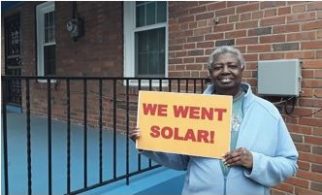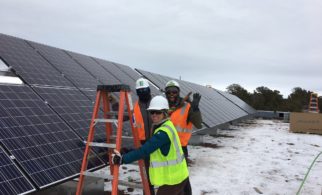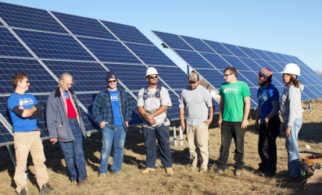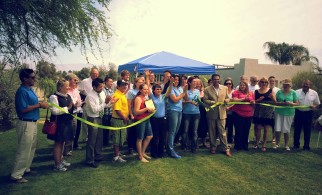About This Guide
The Low-Income Solar Policy Guide was originally developed and launched in 2016 by nonprofits GRID Alternatives, Vote Solar, and the Center for Social Inclusion, to help drive the proposal and adoption of new low-income solar policies and programs, both as stand-alone efforts and as part of broader renewable energy programs. GRID Alternatives and Vote Solar are current contributing partners to the Guide. It is meant to be a tool for policymakers, community leaders and others who are working on solar access at the federal, state and local level.
There are many effective policy tools for supporting solar adoption among consumers at large, and nearly all of them help expand low-income access to solar power to some extent. However, fully enabling low-income solar participation requires policies and programs that are specifically designed to address the unique barriers faced by these communities. This guide provides an overview of those barriers, as well as underlying principles for successful programs, existing policy tools that can be used to create programs, and examples of state and local models that have successfully improved access.
Do you have a policy tool or successful model that you want us to consider? We’ll gladly review and consider it for addition to the Guide. Contributions will be evaluated based on these criteria.
This project was made possible by the generous support of the Energy Foundation and the 11th Hour Project.
GRID Alternatives and Vote Solar would like to acknowledge the many individuals, partners, industry experts, and consultants whose efforts helped create this Low-Income Solar Policy Guide. We are thankful for the input we received from the following individuals and organizations:
Lisa Abbott, Kentuckians For The Commonwealth
Sara Baldwin Auck, Interstate Renewable Energy Council
Colorado Energy Office
District of Columbia Sustainable Energy Utility (DCSEU)
Tom Hunt, Vice President of Corporate Development, Clean Energy Collective
MeLena Hessel, Policy Advocate, Environmental Law & Policy Center
Chris Neidl, Director of Here Comes Solar Initiative, Solar One
Katie Ottenweller and Berneta Haynes, Southern Environmental Law Center
Ben Passer, Senior Policy Associate, Energy Access and Equity, Fresh Energy
Emily Rochon, Director of Energy and Environment for Boston Community Capital
The contents of the Low-Income Solar Policy guide were researched and written by the following individuals:
Tom Figel, GRID Alternatives
Sean Garren, Vote Solar
Anthony Giancatarino, Center for Social Inclusion
Stan Greschner, GRID Alternatives
Rosalind Jackson, Vote Solar
Melanie Santiago-Mosier, Vote Solar
Ingrid Schwingler, GRID Alternatives
Marta Tomic, Vote Solar






